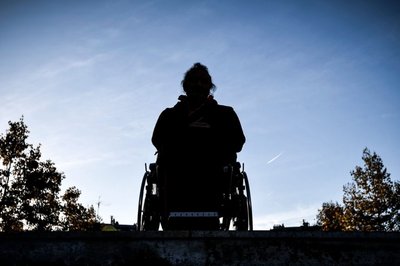By Lily Warlen
Lily was inspired to write this essay after reading PBS NewsHour economics columnist John Komlos'
article
"Why raising the minimum wage makes good economic sense."
On McDonalds' corporate website, it says “We believe some of the best people in the world work here.” I don't know what you think, but if I thought someone was one of the best people in the world, I would treat them with respect. I would pay them enough money to actually be able to live on.
McDonalds is not alone in neglecting to pay their employees a livable wage. According to a 2014 compensation rate analysis by CBS, fast food CEOs make 1000 times more than their workers.
1000
times!
A large number of other business chains do not pay a livable wage either. Minimum wage is not sufficient to live on and employees are being taken advantage of. If employees were being paid fairly, there would be less people on social welfare programs. That being said, even families with government assistance are still struggling to live normally. Parents making minimum wage work hard to barely get by, while company CEOs make billions off the hard labor of their employees.
Some say that if minimum wage were raised there would be less available opportunities for employment, but there is little evidence to support that. In fact, studies have shown that when minimum wage was raised in the past, it made no difference in the overall number of job opportunities. Since the 70s, the U.S. economy has grown immensely, but “real wages” — wages with inflation taken into account — have stayed the same or even dropped while CEO incomes steadily rose.
A living wage is defined as a wage that is high enough to maintain a normal style of living. Minimum wage does not provide that level of security for an average family. In 2012, a family of four lives in poverty if they make less than $22,811 a year, according to a 2013 paper by Misty L. Heggeness and Charles Hokayem, economists at the U.S. Census Bureau.
Minimum wage workers typically make around $15,000 a year. This amount is just the government-stated brink of poverty for a four person family working full time. That works out to being $1900 a month. How far can you a person go with that amount of income?
First, take housing into account. Basic housing will cost around $565 a month, depending on the location. Heating the house and keeping the lights on will demand another $250 a month. Then there's transportation to work, picking up kids from school, buying groceries. Transportation is necessary. A used car, gas and maintenance cost about $345 a month. Just barely scraping by for food would cost $356 a month. For childcare even with government assistance you have to pay at least $220 a month. Healthcare? On average $280 a month. What happens if you or one of your kids get sick? Many low wage jobs don’t provide sick leave, let alone health insurance. If you miss work, you’ll lose those days wages or worse, your job.
Now it’s the end of the month and you’re out of money. But the expenses keep on coming. Clothing, shoes, school supplies. There is no money left over for other things. What do working poor parents have left to give to their children when they come home exhausted from working and still have nothing to show for it? How can these parents tell their kids that if they work hard they can succeed, if they themselves come home from working hard every night and are still living in that same cycle of poverty?
Employees being paid fairly would keep more people from needing social welfare programs like food stamps and public housing.
If employees were being paid a fair amount to live on, then taxpayers wouldn’t have to spend so much on public benefit programs. According to a 2011 report by the University of California, Berkeley, 52 percent of fast food workers are getting help from public assistance programs. According to a 2013 report by the National Employment Law Project, “(l)ow wages and lack of benefits at the 10 largest fast food companies in the United States cost taxpayers an estimated $3.8 billion per year.”
Republican Candidate Donald Trump likes to say that workers are being paid too much.In the fourth 2015 Republican Debate, Trump said workers being paid too much is the reason our country isn’t “winning” economically. If workers being paid the bare minimum is keeping America behind in the race to “win” economically, then there needs to be bigger priorities than an imaginary economic race. It’s ridiculous to think this supposed “economic race” would be more important than the 3 million Americans who are working for this little.
According to Trump, with “wages too high, we’re not going to be able to compete against the world." That isn’t the problem though. The problem is that we can’t make competition a priority above fair treatment of people.
We have made so much progress in the advancement of technology, so why have we not made progress in a concept that is really quite simple. If someone was to work as hard as they possibly could on minimum wage, then they should make enough money for their family to be able to live independent of the government. Companies that are making billions a year, with workers making nothing are abusing their employees’ rights.
Working families should not have to rely on the government for assistance, and if they were being paid fairly they wouldn’t have to. If companies truly “respect” their employees then they should show them that by paying them fairly.
Lily Warlen is in ninth grade at Guyer High School in Denton, Texas.
Make minimum wage a livable wage
Share

Copyright © 2025 NewsHour Production LLC. All Rights Reserved
Illustrations by Annamaria Ward

